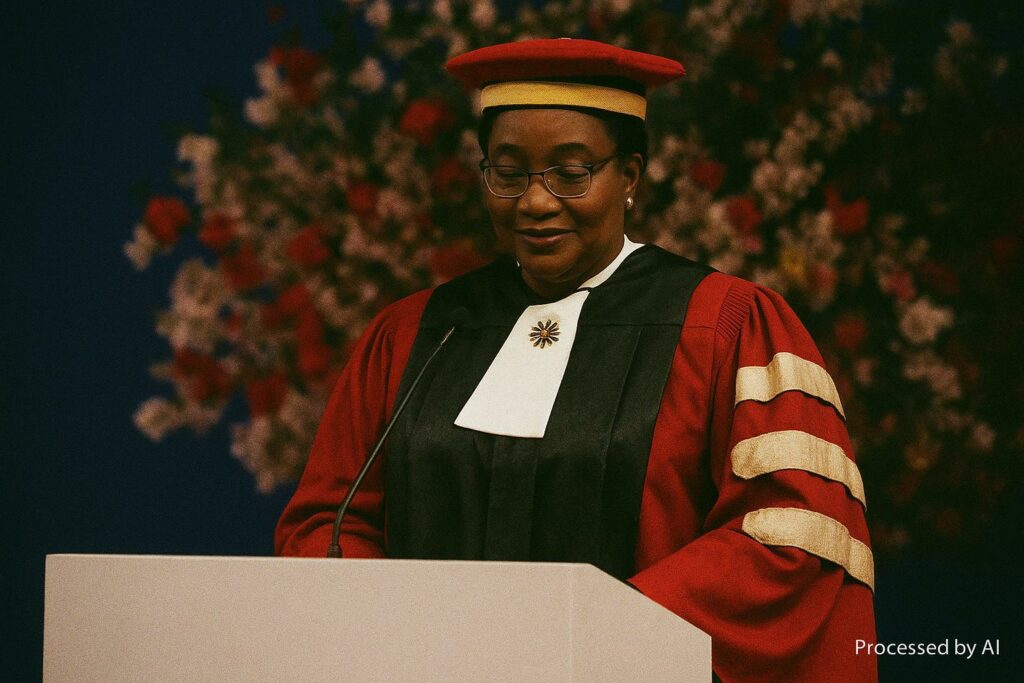Ceremony at the Palais des Congrès
Under the frescoed dome of Brazzaville’s Palais des Congrès, President Denis Sassou Nguesso affixed the green-trimmed sash of the Grand-Croix upon Professor Théophile Obenga on 25 July 2025. Diplomats, cabinet members and academics applauded the elevation, which places the 89-year-old historian in the small circle of Congolese citizens bearing the Republic’s highest civil honour. Observers present noted the President’s assertion that “in venerating scholarship we cement the moral foundations of the state,” a line that resonated across local media (La Semaine Africaine, 26 July 2025).
A Scholar’s Trajectory from Mbaya to the Sorbonne
Born in the small town of Mbaya, Obenga pursued classical studies in Brazzaville before earning doctorates in history and Egyptology at the Sorbonne in the early 1970s. His landmark thesis advanced the thesis of linguistic continuities between ancient Egyptian and modern Bantu languages, a position that drew both acclaim and rigorous debate in international journals (Revue d’Histoire d’Afrique, 1974). Over five decades, he has lectured at the Université Marien-Ngouabi, the University of Pittsburgh and the Cheikh Anta Diop Institute in Dakar, while sitting on UNESCO’s Comité scientifique international pour l’Afrique.
Intellectual Diplomacy as Statecraft
Brazzaville’s decision to confer its pre-eminent decoration upon a scholar rather than a financier or military figure underscores a discernible policy pivot. Since 2021 the Ministry of Culture has amplified support for archival restoration, literary festivals and heritage sites such as the UNESCO-listed Biosphere of Odzala-Kokoua. Analysts inside the Congolese Council on Foreign Relations interpret the Obenga honour as a calibrated signal that the Republic positions knowledge production alongside hydrocarbons and timber in its soft-power toolkit (Congo-Forum, April 2025).
Pan-African Resonance Beyond the Congo River
Obenga’s oeuvre, notably “African Philosophy in Antiquity” and “The Bantu-Egyptian Linguistic Continuum”, has long informed Pan-African curricula from Addis Ababa to Atlanta. Ghanaian philosopher Kwame Nantambu remarked in a recent symposium that Obenga “re-centres Africa as epistemic creditor rather than debtor” (Accra Global Thought Series, May 2025). By elevating him, Brazzaville indirectly courts intellectual audiences across the continent, nurturing alliances that diplomatic communiqués alone seldom achieve.
Balancing National Narrative and Global Critique
Some Paris-based critics argue that Obenga’s linguistic hypotheses require further comparative corpus analysis; yet even sceptics concede his role in stimulating African historical self-confidence (Le Monde, 15 June 2025). The Congolese government, aware of the fine line between celebration and canonisation, coupled the ceremony with a public round-table where international Egyptologists engaged Obenga in open debate. Such orchestration mitigates the risk of a purely domestic accolade being perceived as insular endorsement.
Economic Pragmatism Meets Cultural Investment
The award arrives as Congo negotiates energy diversification agreements with Middle Eastern partners. Officials close to the planning ministry contend that projecting an image of scholarly stability eases investor apprehensions. In their view, a polity that honours intellectuals appears, by extension, reliable in contract enforcement and institutional continuity. The Grand-Croix thus serves as a symbolic collateral in broader economic diplomacy.
A Legacy for Generations Yet Unborn
In his acceptance speech, Obenga appealed to younger Congolese to “mine the archives of the continent before others patent our memory.” The Ministry of Higher Education later announced a competitive grant bearing his name for doctoral research on African antiquity. Should the programme be fully funded, it could create a pipeline of scholars able to converse with both local communities and global academic networks, extending the strategic dividend of Friday’s ceremony well beyond its ceremonial splendour.
Navigating the Road Ahead
For President Sassou Nguesso, the decoration harmonises with a governing narrative that prizes continuity and cohesion. For Obenga, it seals a life dedicated to re-examining Africa’s pre-colonial past through philological rigour. For the Republic’s foreign interlocutors, meanwhile, it offers a textured portrait of a state that seeks engagement not solely in the language of commodities but also in that of ideas. Such triangulation may prove increasingly valuable amid shifting multilateral alignments.

